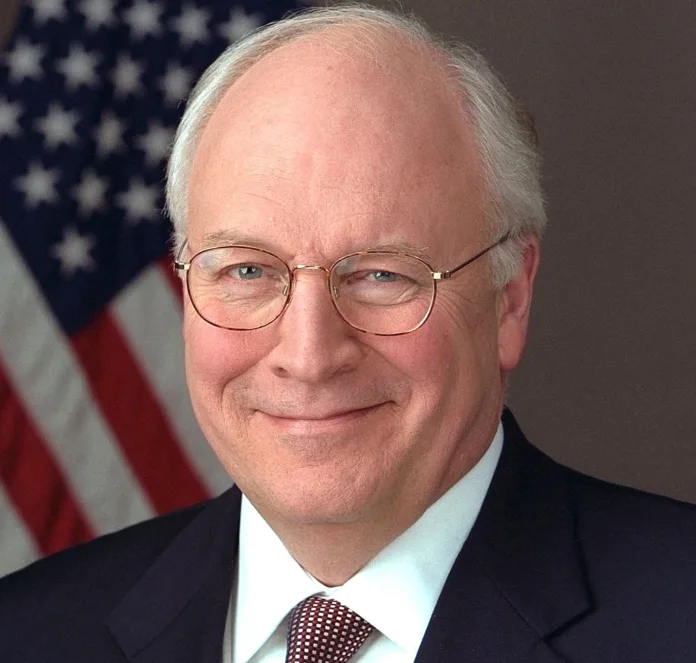Dick Cheney breaks from republican ranks, endorsing democratic VP Kamala Harris over Donald Trump in the upcoming election
In a surprising political twist, former U.S. Vice President Dick Cheney has declared his intention to vote for Democratic Vice President Kamala Harris in the November presidential election. Cheney, a prominent Republican figure and former vice president under George W. Bush, issued a statement expressing his deep concern over the candidacy of current Republican nominee Donald Trump.
Cheney’s decision is rooted in his strong criticism of Trump, whom he has labelled as a severe threat to American democracy. In his statement, Cheney accused Trump of attempting to undermine the results of the 2020 presidential election through “lies and violence” and asserted that Trump should never hold power again. Cheney emphasized the importance of prioritizing the nation’s welfare over partisan loyalty, a sentiment reflected in his decision to support Harris, the Democratic nominee.
“I believe that no one has posed a greater threat to our republic than Donald Trump,” Cheney said. “As citizens, we each have a duty to put country above partisanship to defend our constitution. That is why I will be casting my vote for Vice-President Kamala Harris.”
The announcement marks a notable departure from Cheney’s long-standing Republican affiliation and aligns him with the Democratic camp in a significant election year. Cheney’s daughter, Liz Cheney, a former Republican congresswoman and vocal critic of Trump, had previously indicated her support for Harris, adding to the growing list of Republicans distancing themselves from Trump.
Liz Cheney, who served on the House select committee investigating the January 6 Capitol riot and was one of ten Republicans who voted to impeach Trump, lost her congressional seat in 2022 to a Trump-endorsed candidate. Her father’s endorsement of Harris further underscores the rift within the Republican Party over Trump’s influence and leadership.
The Harris campaign welcomed Cheney’s support, with campaign chair Jen O’Malley Dillon expressing appreciation for Cheney’s willingness to place the nation’s interests above partisan divides. “The vice-president is proud to have the support of Vice-President Cheney and deeply respects his courage to put country over party,” Dillon said.
Trump, however, responded to Cheney’s endorsement with characteristic defiance. Taking to social media, Trump dismissed Cheney as an “irrelevant RINO” (Republican in Name Only) and criticized him as the “King of Endless, Nonsensical Wars,” referencing Cheney’s role in the Iraq War. Trump’s response reflects the ongoing tension and division within the Republican Party, with Cheney’s stance highlighting the broader conflicts over Trump’s influence and the direction of the GOP.
Cheney’s endorsement of Harris signals a dramatic realignment for a figure once central to Republican policy and politics. As the election approaches, his decision adds another layer of complexity to the already turbulent political landscape, showcasing the profound divisions within the Republican Party and the broader implications for the upcoming presidential race.
Analysis:
Political: Cheney’s endorsement of Kamala Harris is a striking departure from his long-standing Republican affiliation and signals a significant shift in the political landscape. His support for Harris reflects a growing faction within the GOP that is increasingly critical of Trump’s influence and leadership. This development underscores the deepening divisions within the Republican Party and the broader implications for party unity and electoral strategies. Cheney’s decision to support Harris might also influence other Republicans who are disillusioned with Trump, potentially impacting voter behavior and party dynamics in the upcoming election.
Social: Cheney’s endorsement of Harris highlights broader societal debates about political integrity, partisanship, and democratic values. By choosing to back a Democratic candidate, Cheney emphasizes the importance of upholding constitutional principles over partisan loyalty. His stance resonates with voters who prioritize national unity and democratic norms over party allegiance. This move could inspire similar actions from other political figures and voters, reflecting a trend of valuing constitutional principles and national interests over traditional party lines.
Racial: While Cheney’s endorsement does not directly address racial issues, it intersects with broader conversations about leadership and representation. The dynamics of Cheney’s decision and its impact on the Republican Party could influence discussions about diversity and inclusivity within political spheres. Additionally, the broader political realignments may have indirect effects on policy discussions related to racial and social justice, as different factions within the GOP and other parties navigate these issues in light of shifting political alliances.
Gender: The endorsement of Kamala Harris, a female vice-president, by Cheney, a prominent male political figure, brings attention to gender dynamics in politics. Cheney’s support highlights the role of gender in shaping political endorsements and the broader implications for women in leadership roles. Harris’s candidacy and Cheney’s backing contribute to ongoing discussions about women’s representation and influence in politics, reflecting changing attitudes and the increasing visibility of female leaders.
Economic: Cheney’s endorsement of Harris could have economic implications, particularly in terms of campaign funding and support. The alignment of high-profile figures with Harris may impact fundraising efforts and voter support, potentially influencing economic aspects of the election, such as campaign expenditures and financial contributions. Additionally, Cheney’s departure from the Republican camp could affect GOP fundraising and economic strategies, as the party navigates the challenges of maintaining unity and financial support in a contentious election year.
